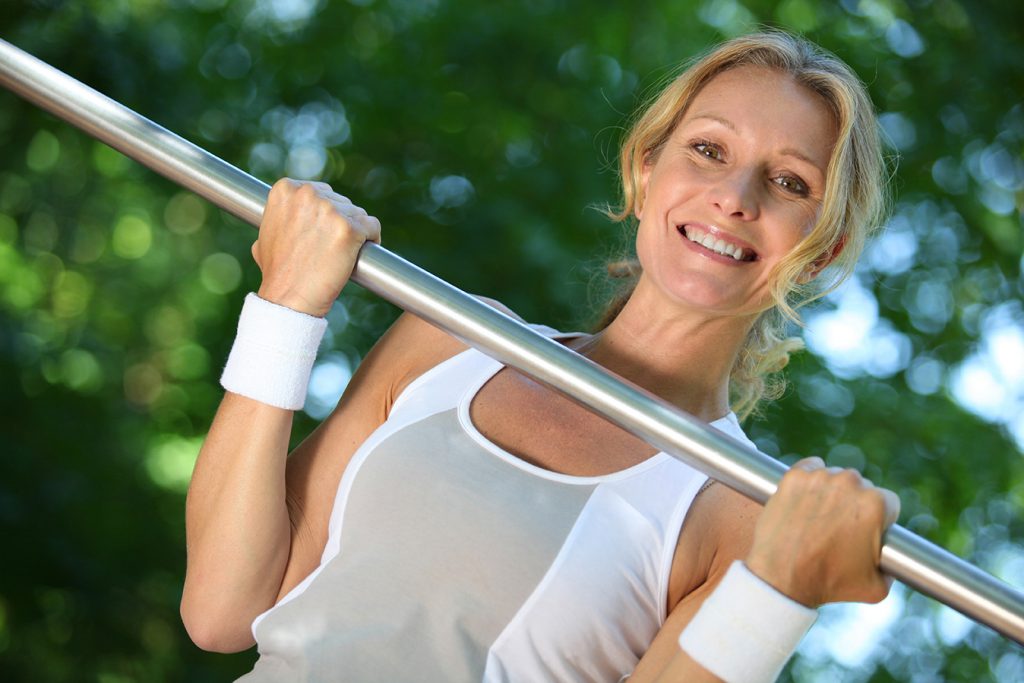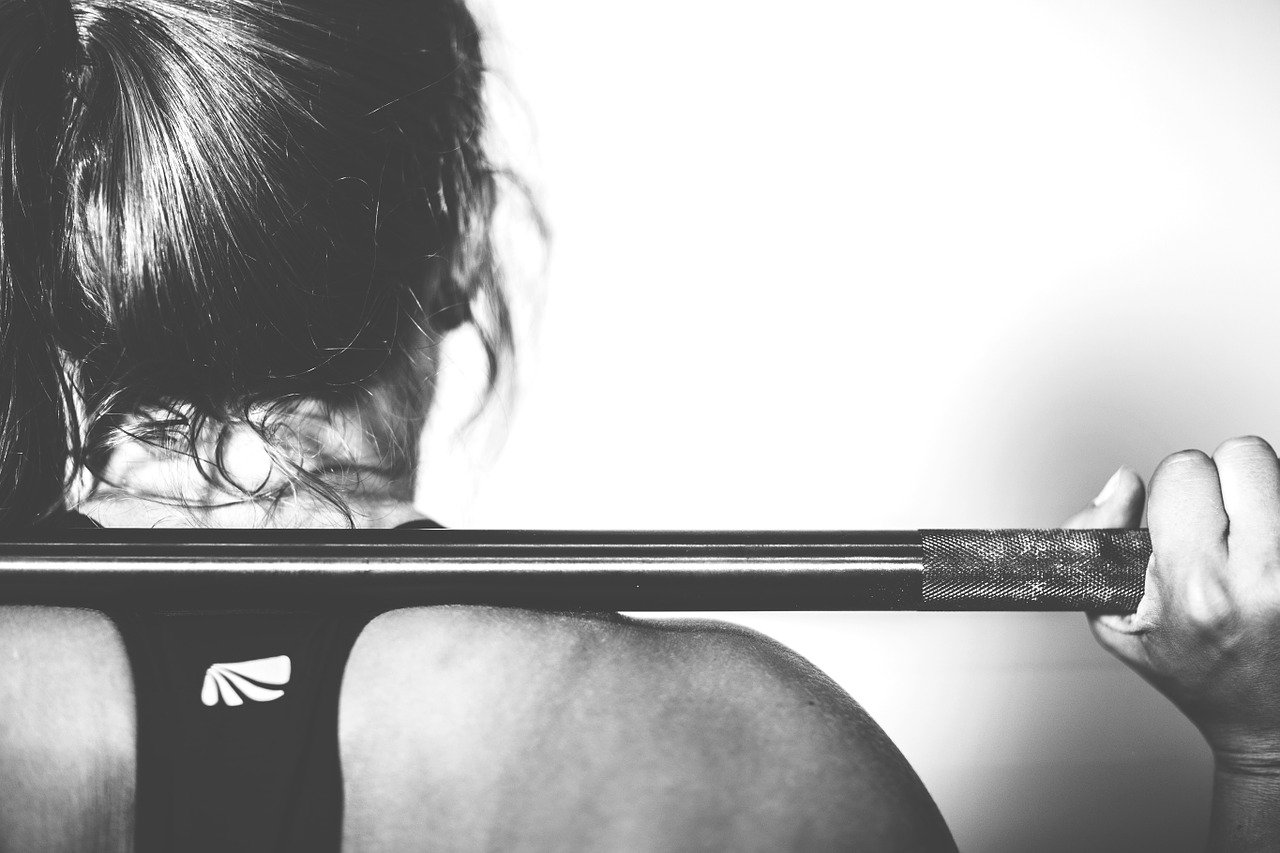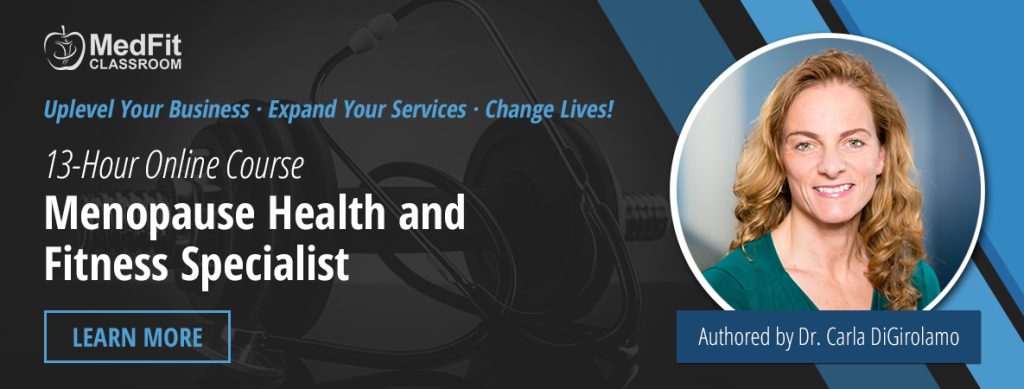Keys to Empowering Women in the Weight Room, Part 1
The hormonal changes of mid-life bring our muscle and bone mass under assault. As circulating estrogen declines and estrogen receptors in skeletal muscle become scarcer, changes in bone density, muscle mass, and metabolism become apparent.
Shoulder to shoulder with the importance of cardiovascular health, optimizing our muscle and bone health helps stave off decline in bone density which can lead to fracture, and can help mitigate the increasing insulin resistance that wreaks havoc on our changing metabolism.
To coin a phrase from Dr. Stacy Sims, there is a great benefit to women in this stage of life (and all stages of life) who “Lift heavy sh*t”. Now, if you have never lifted weights, this can sound intimidating. But don’t worry. You are not alone.

Historically, there have been many barriers to women in the weight room. Training environments where achieving a certain body image is the focus rather than building strength, healthy movement patterns, and improving body composition can be unmotivating and intimidating. The stigma of weightlifting as “masculine” or that it “makes you bulky” and the misconceptions that weightlifting is not beneficial for women are also among the many obstacles that women of all ages face.
In the May/June issue of ACSM Health and Fitness Journal, Claire Ford et al. do an excellent job of defining the obstacles that women face in the weight room and have created a framework called “The 3 E’s” that outlines strategies to overcome these barriers. I’ll take the summary points from this article and translate them into practical solutions for women and fitness professionals to empower themselves in the world of weightlifting.
The 3 E’s – Keys to Empowering Women in the Weight Room
Ford, C, Kercher VM, Kercher KA; ACSM’s Health & Fitness Journal 27(3):p 14-19, 5/6 2023.
Goal of the study
Use a socioecological model to provide insight into the nature of women’s unique experiences with weightlifting and describe a practical approach for empowering women in this environment.
Some statistics
Just 2 days per week of resistance training can reap physical, mental, and emotional health benefits.
Only 25% of the US population meets these recommendations.
17.5% of women engage in weightlifting on a regular basis
Benefits of Weightlifting
- Improves body composition.
- Helps prevent bone loss.
- Maintenance of healthy metabolism.
- Maintenance of quality movements over the lifespan.
- Promotes emotional well-being and self-concept.
Barriers to weightlifting unique to women
The notion that women face unique barriers to weightlifting has been a subject of investigation. Harne and Bixby organized these barriers into the following 3 categories:
Time / effort
- “I don’t want to get bulky”.
- ”I’m afraid I’ll hurt myself”.
- “I don’t want to be sore”.
- “I’m in terrible shape”.
Physical Effect
- “I don’t have time to lift weights”
- “It’s too hard”
- “It’s easier to hop on the treadmill”
- “I’m overwhelmed at the gym
Social
- “I don’t have anyone to go to the gym with”
- “Isn’t weightlifting better for men?”
- “I like the group classes because my friends can come with me”
- “There are too many men. I feel like I don’t belong”
The 3 E’s: A framework through which we can understand and address women’s barriers to weightlifting
After identifying and categorizing these unique barriers to weightlifting that women face, the authors created a framework upon which to overcome these barriers. This framework is called “The 3 E’s”.
This ACSM article speaks to an audience of fitness professionals and how the fitness industry can work to overcome these barriers.
In Part 2 of this article, I take this a step further and translate these recommendations for fitness professionals into strategies that non-professionals can implement for themselves.
Fit Pros: Offer menopausal and perimenopausal women an individualized approach to training, nutrition and wellness as a Menopause Health and Fitness Specialist.
Dr. Carla DiGirolamo is a double Board-Certified Obstetrician/Gynecologist and Reproductive Endocrinologist who specializes in the care of reproductive age and mid-life women. Carla completed her residency training in Obstetrics and Gynecology at Brown University Medical School/Women and Infants’ Hospital and her Reproductive Endocrinology training at the Massachusetts General Hospital at Harvard Medical School. She is a North American Menopause Society (NAMS) Certified Menopause Practitioner and has been featured in multiple podcasts and speakerships at various events discussing the physiology of the hormonal changes of menopause, hormone therapy and functional fitness training.
References
- Ford, C, Kercher VM, Kercher KA; The 3 E’s – Keys to Empowering Women in the Weight Room. ACSM’s Health & Fitness Journal 27(3):p 14-19, 5/6 2023.
- Harne AJ and Bixby WR. The benefits of and barriers to resistance training among college-age women. Journal of Sport Behavior 19(2):151-66, 2005


